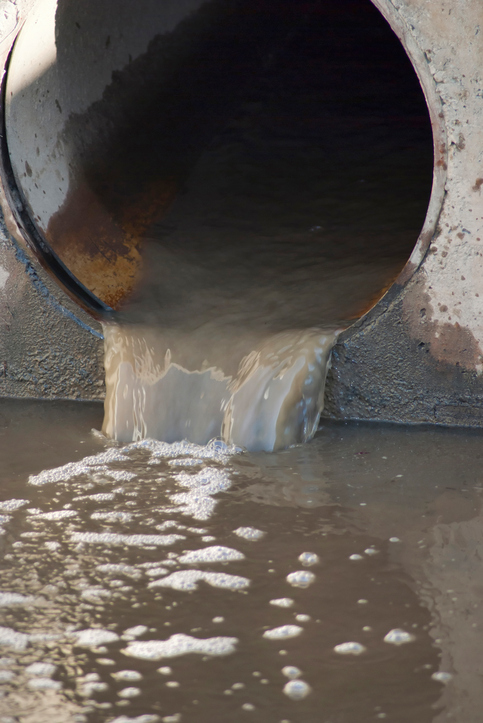- HOME
- Services
- Environmental Testing
- BTEX Testing Services
- Volatile Organic Compound (VOC) Testing
- Total Recoverable Petroleum Hydrocarbons Testing and Analysis
- Pesticide Testing and Analysis
- Polycyclic Aromatic Hydrocarbons Testing
- Hazardous Waste
- Wastewater Testing
- Soil Testing
- TCLP Testing
- SPLP Testing
- RCRA Metals TCLP Analysis
- Agriculture Testing Laboratory
- Brownfield Testing Laboratory
- Mineral Testing Laboratory
- Chemical Testing Laboratory
- Field Sampling
- Phoslab Environmental Consulting
- Resources
- About Us
- Contact Us
- PhosBlog
Call Us Toll Free! (863) 682-5897
National Pollutant Discharge Elimination System (NPDES)
Phoslab Environmental Testing Services
 The National Pollutant Discharge Elimination System (NPDES) permit program was created in 1972 under the Clean Water Act (CWA) and it impacts the daily responsibilities of hundreds of thousands of facility owners, operators, and other dischargers of wastewater.
The National Pollutant Discharge Elimination System (NPDES) permit program was created in 1972 under the Clean Water Act (CWA) and it impacts the daily responsibilities of hundreds of thousands of facility owners, operators, and other dischargers of wastewater.
The purpose of the NPDES is to limit water pollution in the United States by focusing on the sources of discharge. More specifically, the CWA, through the NPDES, approves qualifying states, tribes, and territories – including the State of Florida – to assume permitting authority over the permit holders and seekers.
State permitting authorities are responsible for ensuring that facilities that discharge pollutants into wastewater comply with the statutory limits. Accurate laboratory analysis is a crucial component to the process. Phoslab Environmental Services is a NELAP-certified environmental laboratory committed to providing fast, accurate, and CWA-compliant environmental analysis that is appropriate for the industry and type of discharge.
Who needs to comply with NPDES permit requirements?
The Clean Water Act requires that anybody discharging industrial, municipal, or agricultural waste from a point source into waters of the United States must have an NPDES permit. The permit limits the amount and type of discharge the permit holder may release and how it must be monitored and reported.
The federal statutes do not precisely define a “point source” but it has been held to generally include any confined and discrete discharge conveyance including pipes, tunnels, even floating vessels or concentrated animal feeding operations. It does not include purely incidental conveyances such as agricultural stormwater discharges.
The major participants to whom the NPDES permit program applies include industrial and municipal facilities, as well as any other facilities – more than 400,000 in total – that discharge directly into surface waters. The permit requirements can also affect those involved in stormwater management for new developments and redevelopments, construction sites, and aquatic pesticide applicators, just to name a few.
Determining NPDES permit requirements
Each NPDES permit is unique and specifically tailored to the receiving facility. The permitting authority is responsible for developing the permit for each individual facility based on information provided in the program application, including information such as the facility’s activities, water quality, and the type of discharge.
The NPDES permit is valid for a specified amount of time, up to five years, and the facility must reapply before expiration. Permit holders are responsible for monitoring and reporting conditions in a manner that complies with the permit and CWA requirements for:
- Location and frequency of monitoring
- Method of collecting samples
- Analysis method
- Reporting and record keeping
The needs of each permit holder is unique but it is important to tailor an environmental testing protocol that addresses the specific environmental concerns the location presents. Phoslab Environmental Services employs a team of chemists, biologists, and geologists who understand the importance of choosing the correct means of analysis.
Providing testing for NPDES permit holders
There are many methods of testing a single water sample depending on the properties to be measured. Professionals at Phoslab Environmental can assist you in determining which methods are appropriate for your facility. Our expert guidance helps NPDES permit holders stay in compliance with CWA requirements.
Some of the characteristics that can determine the type of CWA-compliant testing include:
- Density of solids – the materials suspended or dissolved in the sample that can be isolated through filtration or evaporation
- Classification by analyte – testing for specific compounds, including organic, inorganic, pesticides, and pharmaceutical ingredients
- Physical characteristics – including temperature, pH, and odor
No matter the particular test, it must be performed in accordance with CWA guidelines in order for the data to be valid and compliant. Phoslab Environmental Services is a full-service environmental testing laboratory performing a range of services suited to a number of industries in Central Florida.
Types of tests performed for NPDES permit holders
Phoslab Environmental offers an array of wastewater analysis methods. These include:
- Biochemical oxygen demand (BOD test)
- Chemical oxygen demand (COD test)
- Total organic compound (TOC test)
- Oil and grease (O&G test)
- Total suspended solids (TSS)
- Total dissolved solids (TDS)
- Analysis for individual compounds
Phoslab’s range of data and analysis services also help clients comply with the requirements of discharge monitoring reports that are required of some permit holders.
NPDES Laboratory in Florida
Phoslab Environmental Services, in Lakeland, FL, is certified by the National Environmental Laboratory Accreditation Program (NELAP). NELAP was created by the NELAC Institute as a means to ensure quality, reliability, and transparency in the gathering of environmental laboratory data. NELAP-certification means laboratory results for Phoslab may be accepted by a number of environmental programs, including the CWA.
Phoslab Environmental Services proudly delivers quick and accurate results to facilities across central Florida. Incorporating the latest technology and relying on a skilled team of scientists, Phoslab is equipped to provide environmental data that complies with the NPDES and other environmental protection programs.
Whether you are involved in industrial, agricultural, pharmaceutical, or other industry, if you are required to comply with a NPDES permit for wastewater discharge, consult with a Phoslab professional to discuss a testing protocol that meets your needs.
Additional NPDES resources
- Environmental Protection Agency, NPDES Permit Limits, https://www.epa.gov/npdes/npdes-permit-limits
- Florida Department of Environmental Protection, NPDES Guidance, http://www.dep.state.fl.us/water/stormwater/npdes/guidance_links.htm
- EPA, NPDES Permit Basics, https://www.epa.gov/npdes/npdes-permit-basics
